Hey fellow surfers, ready to take your wave-riding game to the next level? We’ve got your back with 10 advanced surfing tips that will not only amp up your skills but also make your time on the water even more epic.
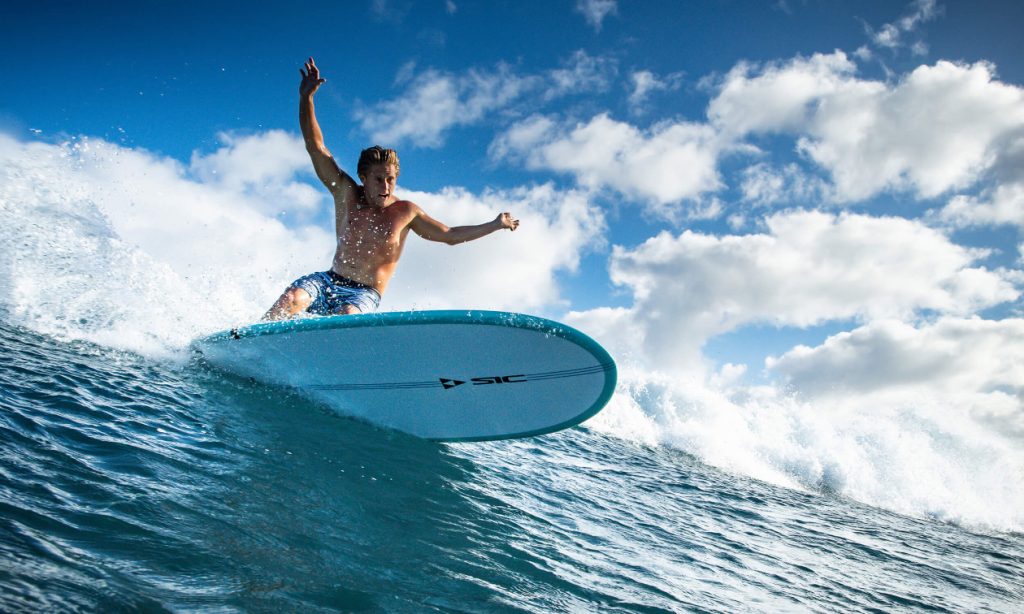
Whether you’re a seasoned pro or just starting out, these tips are your secret sauce to surf success. Join us as we break down the barriers, share some insider wisdom, and bring the joy of improvement to every wave you conquer. Let’s paddle in, catch some waves, and ride the stoke together!
Learn to Pick the Right Wave
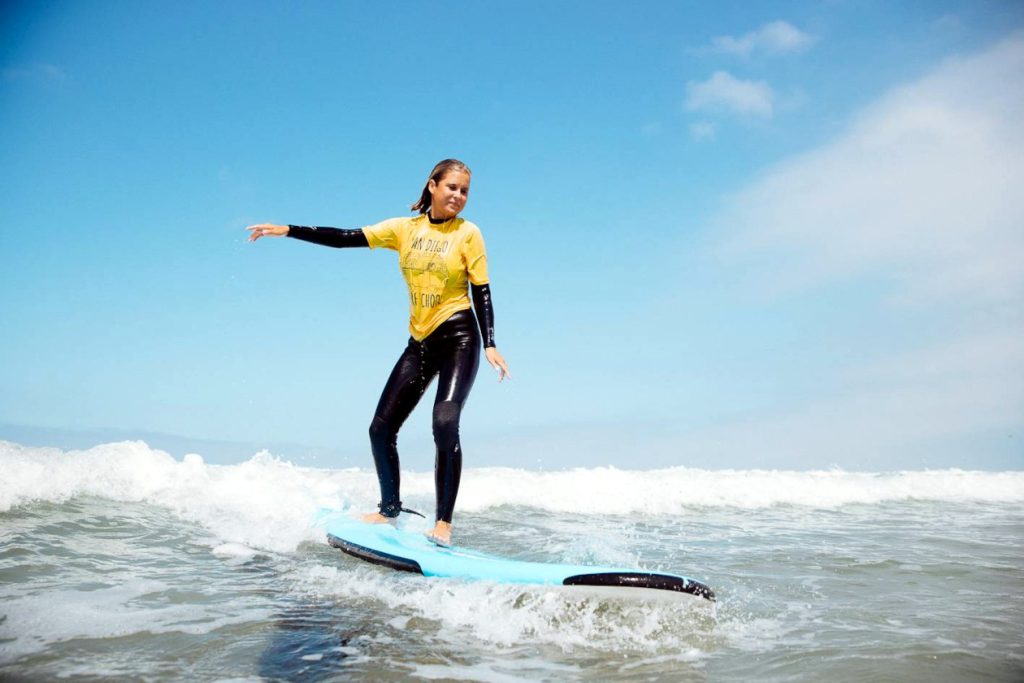
Choosing the right wave is a critical skill for any surfer aiming to enhance their performance. It’s not just about catching any wave that comes your way; it’s about identifying the waves with the most potential for a thrilling ride.
To master this skill, it’s essential to understand the characteristics of a good wave. Look for waves with a clean face, smooth and unbroken. Assess the wave’s shape and direction, aiming for those that provide a consistent and predictable path.
Furthermore, understanding the lineup and observing other surfers can be instrumental in wave selection. Watch for patterns in the sets, notice where experienced surfers position themselves, and learn to anticipate the timing between waves.
Patience is key; wait for the right wave rather than impulsively paddling for any wave that approaches.
As you progress in your surfing journey, refining your ability to pick the right wave will not only lead to more enjoyable sessions but will also contribute to your overall skill development. By mastering this skill, you’ll find yourself effortlessly gliding along the waves and experiencing the true joy of surfing.
Fine-Tune the Position on the Peak
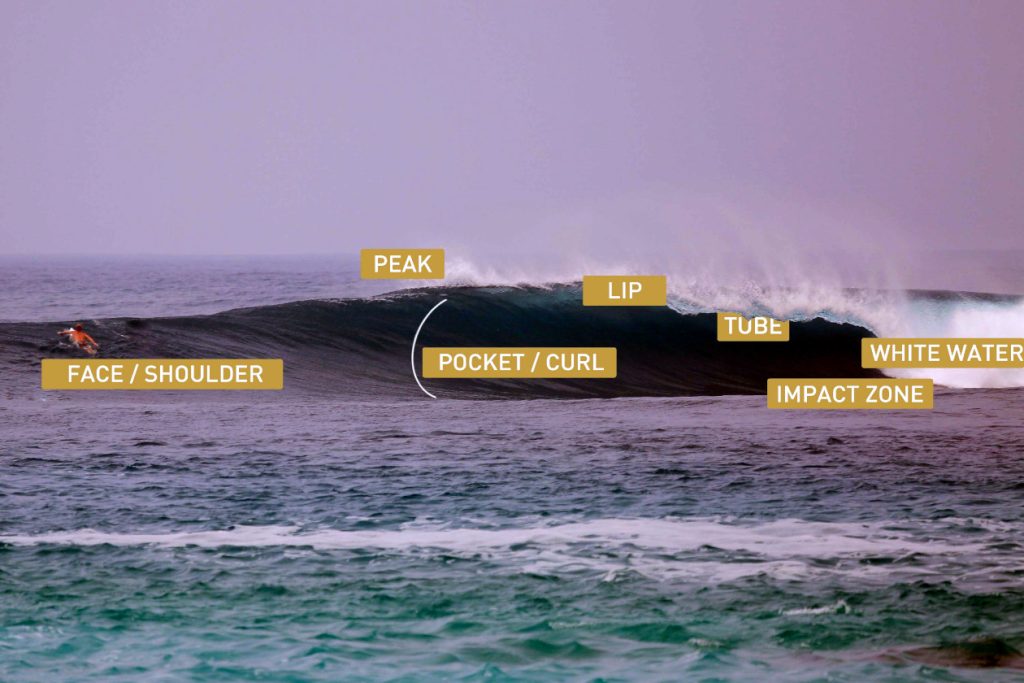
To optimize your surfing experience, fine-tuning your position on the peak is crucial. The peak is where the wave is breaking most consistently, offering the ideal takeoff point. Achieving the perfect position requires a keen understanding of the wave’s dynamics—anticipate its peak and position yourself accordingly.
Striking a balance between being too deep and too far out ensures you catch the wave at its most powerful moment. Experiment with subtle adjustments to your stance and paddle positioning, refining your skills in reading the wave’s patterns.
Fine-tuning your position on the peak not only enhances your wave-catching ability but also sets the stage for more controlled and exhilarating rides.
Eye Your Target
In the dance between surfer and wave, precision is key, and “Eye Your Target” encapsulates the essence of successful surfing. Fixating your gaze on your intended path helps maintain balance and control.
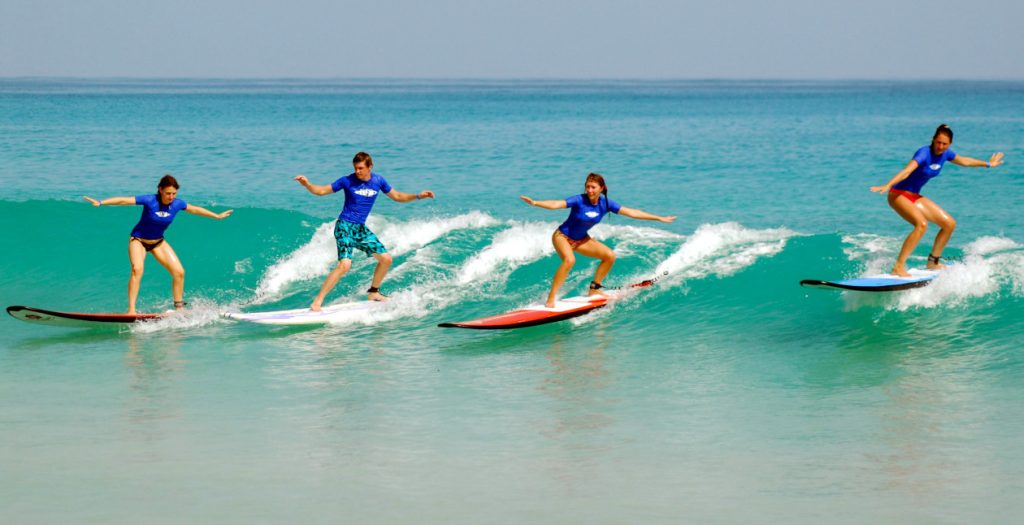
As you paddle into the lineup, keenly observe the wave’s unfolding patterns. Keep your eyes on the approaching swell to anticipate its peak, allowing you to time your pop-up perfectly.
Once riding, maintain a steady focus ahead, aligning your eyes with your desired direction on the wave. “Eye Your Target” is not just about vision; it’s a mantra for surfers to enhance their connection with the wave, promoting fluidity and finesse in every thrilling ride.
Keep a Low Center of Gravity
Maintaining a low center of gravity is a fundamental principle in surfing, essential for stability, control, and speed on the waves. As you ride the surfboard, bending your knees and keeping your center of gravity low allows for better balance, reducing the risk of tipping over.
This posture not only enhances your overall performance but also enables quicker and more responsive movements, crucial for navigating the dynamic and unpredictable nature of the surf.
By adopting a lower stance, surfers optimize their connection with the board and the water, ensuring a more exhilarating and successful surfing experience.
Paddle With Nearly-Closed Fingers
“Paddle With Nearly-Closed Fingers” is a nuanced technique that can significantly impact a surfer’s efficiency and wave-catching ability. While seemingly subtle, the position of your fingers during paddling plays a crucial role in conserving energy and optimizing paddling power.
By keeping your fingers nearly closed as you paddle through the water, you reduce drag and create a more streamlined movement. This subtle adjustment not only helps conserve stamina during long paddles but also allows for a more effective and powerful stroke.
The benefits of paddling with nearly-closed fingers extend beyond energy conservation. This technique enhances a surfer’s ability to catch waves efficiently, ensuring that you’re in the right position when that perfect wave rolls in.
As every paddling stroke contributes to the overall momentum, the nearly-closed fingers technique becomes a valuable component in the rhythm of navigating the lineup. By incorporating this small yet impactful adjustment into your paddling technique, you’ll find yourself gliding through the water more effortlessly. And increasing your chances of catching the waves you target.
In the realm of surfing, where every detail matters, “Paddle With Nearly-Closed Fingers” represents the acknowledgment that even the smallest adjustments can make a significant difference. Especially in a surfer’s overall performance.
This technique is a testament to the intricacies involved in mastering the art of surfing. And highlights the ongoing quest for refinement and efficiency in every aspect of the sport.
Check the Time Period Between Waves
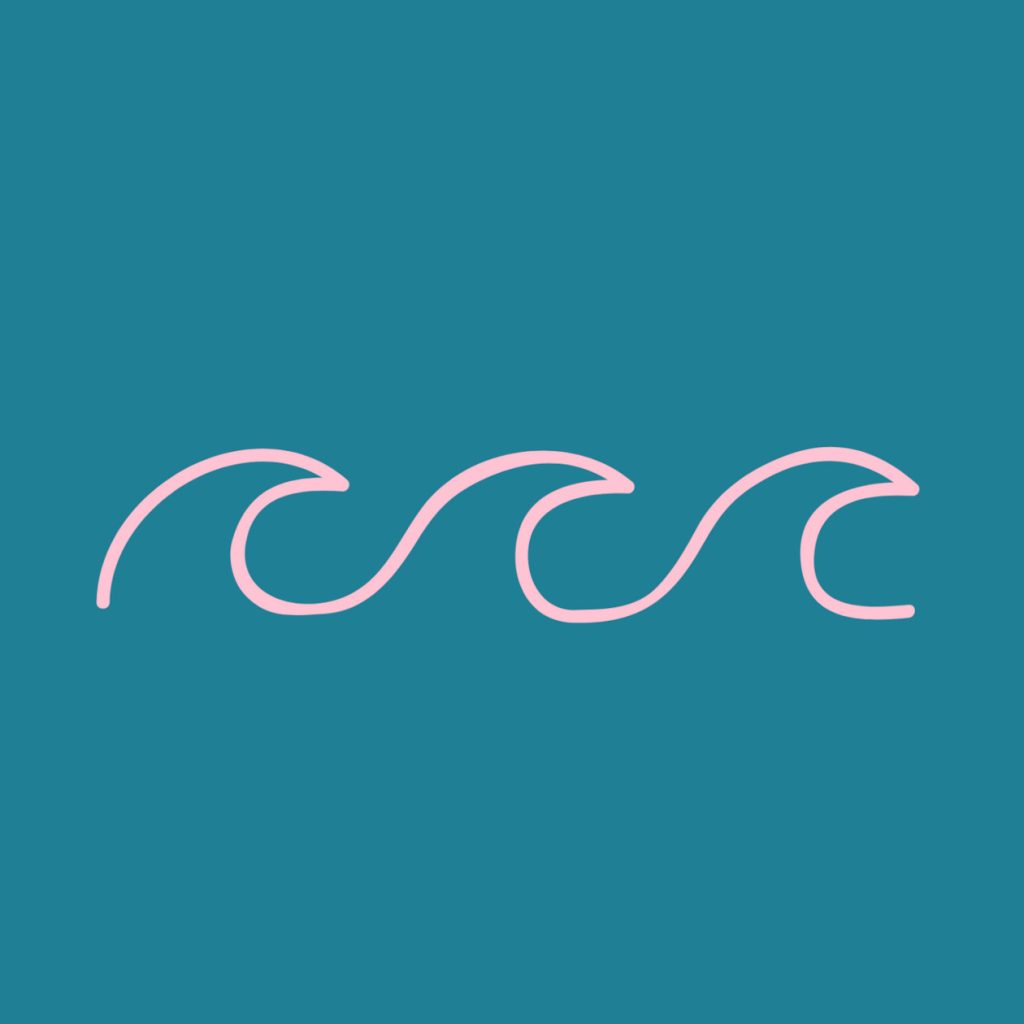
“Check the Time Period Between Waves” stands out as a valuable insight into the strategic aspect of surfing. Knowing when waves come is like figuring out how the ocean moves. It helps surfers pick the best waves.
Surfers use surf watches or watch carefully to know when waves are coming, so they can be ready.
This knowledge is instrumental in positioning oneself optimally in the lineup. Often, the first wave in a set carries the most power and potential. Making it a prime target for an exhilarating ride.
A skilled surfer, adept at reading wave intervals, strategically positions to catch the best waves and enhance their surfing experience.
Beyond wave selection, checking the time period between waves enhances a surfer’s overall situational awareness. It allows for a deeper connection with the ocean’s ebb and flow.
The ability to synchronize with the natural rhythm of the waves becomes a hallmark of an advanced and intuitive surfer.
“Check the Time Period Between Waves” encapsulates the essence of strategic wave-riding. And adds a layer of finesse to the surfer’s repertoire.
Adjust Your Feet While Riding the Wave
Dynamic foot movement is crucial. As you approach the lip of the wave, shift your back foot towards the tail of the surfboard to facilitate quick turns and maneuvers.
Set One Goal and Improve It
Focus on mastering one surf maneuver at a time. Achieving proficiency in one goal is more beneficial than attempting multiple tricks without perfection. Commit to a goal and only move on when it’s successfully executed.
Manage the Wave Face Timing
After completing a bottom turn, continuously analyze the wave’s dynamics. Stay alert to real-time changes on the wave face, allowing you to make informed decisions during your ride.
Watch Wave Videos in Slow Motion
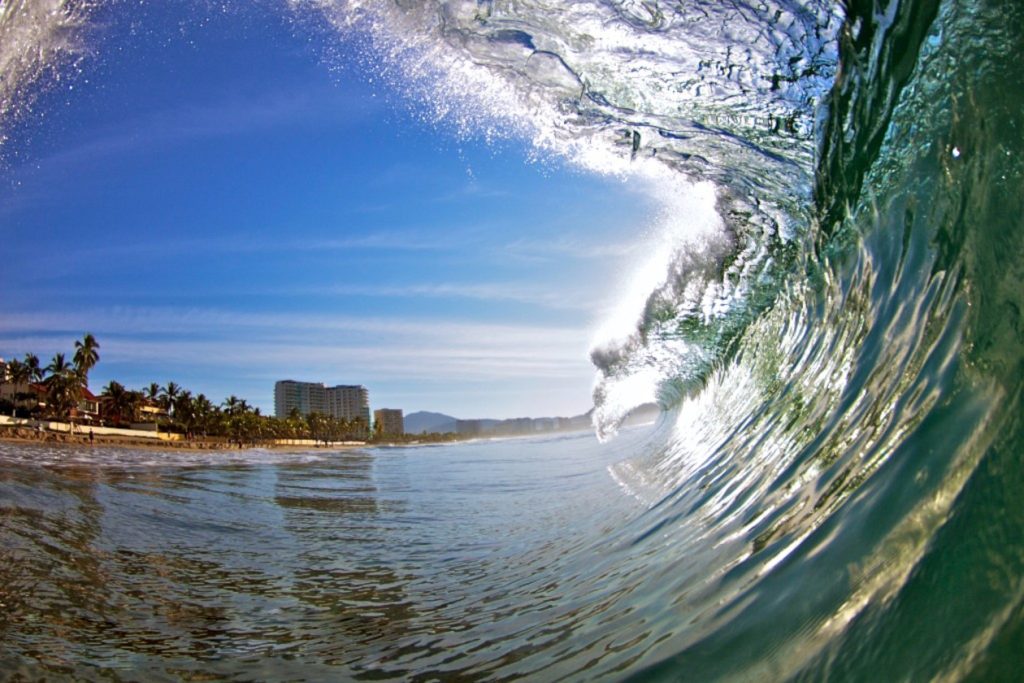
Study surf movies and videos to gain insights into advanced techniques. Analyze details from take-off to aerial moments, and then apply these learnings to your own surfing.
Conclusion
Embark on your journey to advanced surfing by incorporating these 10 tips into your practice sessions. Remember, progress is gradual, and every wave presents an opportunity for improvement. Stay committed, analyze your performance, and enjoy the thrill of advancing your surfing skills.
For surf lessons in Costa Rica vist Costa Rica dive and Surf
